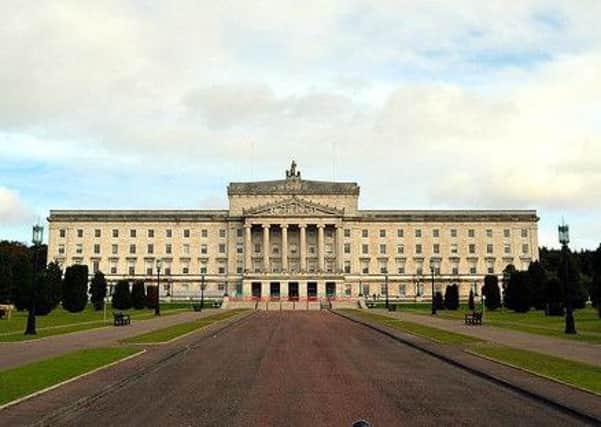Claims of anti Catholic bias by the old Stormont regime are hugely exaggerated


The allegations are widely believed, even by unionists, but are hugely exaggerated.
It is high time that the truth was recognised and the 50th anniversary of the outbreak of the Troubles in 1968 is a good time for an open discussion.
Advertisement
Hide AdAdvertisement
Hide AdOn housing the record is clear. Six mainly small councils out the 68 local authorities were guilty of using the location of local authority houses for gerrymandering purposes.


Civil rights campaigners at the time were correct to protest against this wrong-doing, and the abuses were corrected soon after street protests began in 1968 and well before the Provisional IRA was formed in December 1969.
The abuses were limited and localised but nonetheless serious. In any other country the result would have included barring the councillors concerned from public office and perhaps also fining them.
The abuses only concerned local authority elections, but even so the Stormont regime was wrong in not acting to stop them much earlier.
Advertisement
Hide AdAdvertisement
Hide AdThe Cameron Commission which investigated these abuses in 1969 criticised these actions, but added: “It is in a sense understandable that, given the political history of Northern Ireland, in certain areas in particular, local unionist groups should seek to preserve themselves in power by ensuring that local authority housing is developed and allocated in ways which will not disturb their electoral supremacy.”
What is never added is that there was no attempt to deprive Catholics of housing, even in the six areas guilty of gerrymandering.
The 1971 census shows clearly that Catholics were over-represented in state-owned housing across Northern Ireland and not under-represented as usually assumed.
In 1971 after 50 years of unionist rule Catholics comprised 26% of households but occupied 31% of state-owned houses.
Advertisement
Hide AdAdvertisement
Hide AdHousing was in short supply and the post-war backlog was not cleared until 1985 but this affected all communities.
The same was also true in England.
My own family with four children was unable to get a house of any description and lived in a caravan through the 1950s.
The authoritative survey of the American Professor Richard Rose in 1968 showed that Catholics were over-represented in housing even after taking into account their incomes.
The advantage to Catholics was particularly marked in Belfast, which had a unionist council (19% of Catholics were in local authority houses compared with 9% of Protestants).
Advertisement
Hide AdAdvertisement
Hide AdProfessor Rose’s conclusion was that there was that “no evidence of systematic discrimination against Catholics. The greatest bias appears to favour Catholics in areas controlled by Catholic councillors”.
It should also be noted that no legal challenge was ever mounted to the many Northern Ireland housing acts, all of which required and got royal assent.
Moreover, when a British based ombudsman and commissioner for complaints were installed in 1968 they received few complaints, and in his first report in 1971 the ombudsman praised the quality of administration in Northern Ireland ministries.
The persistent refusal of unionists to argue their case on discrimination is baffling.
Advertisement
Hide AdAdvertisement
Hide AdThe unionist government of the time even refused to give evidence to the Cameron Commission and the situation has not improved much since then.
Nationalists are allowed free rein to exaggerate the problems and they have comprehensively won the propaganda battle for international public opinion.
My own experience discussing these issues on BBC Sunday Politics was perhaps typical.
Colum Eastwood of the SLDP denounced the census figures as “total nonsense” and quickly changed the subject to talk about discrimination in jobs.
Advertisement
Hide AdAdvertisement
Hide AdThe other guest, the journalist Paul McFadden, talked about overcrowding in one Londonderry house, but failed to explain what this had to do with discrimination.
Such is the quality of debate on discrimination, but unionists have only themselves to blame.
• Graham Gudgin is a Cambridge University economist and former economic advisor to David Trimble as first minister